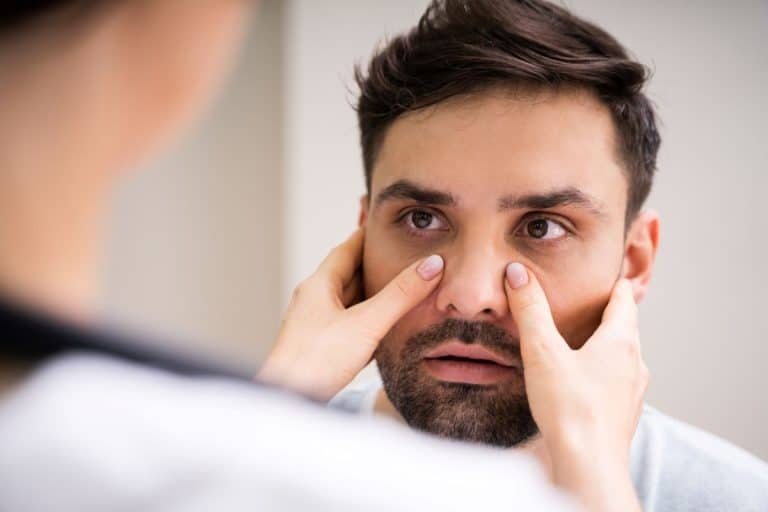
Rhinitis, or inflammation of the nose, can cause a variety of uncomfortable symptoms, such as congestion and sneezing. When the condition is the result of allergies, it is known as allergic rhinitis. Other instances are called nonallergic rhinitis.
Nonallergic rhinitis isn’t just bothersome; if untreated, it can cause acute sinusitis, chronic sinusitis and ear infections. At Puget Sound Ear Nose and Throat, our nasal specialists can provide high-quality treatment to help you breathe and feel better.
Do I Have Nonallergic Rhinitis?
Symptoms of this condition include:
- Congestion
- Runny or stuffy nose
- Sneezing
- Postnasal drip
Unlike allergic rhinitis, nonallergic rhinitis doesn’t cause itchy eyes, nose or throat.
Why Are These Symptoms Occurring?
Nonallergic rhinitis is the result of the nose’s blood vessels expanding and filling the nasal lining with fluid and blood. Possible triggers of this include:
- Infections like the common cold or flu
- Irritants like dust, smoke, chemical fumes or strong odors
- Spicy foods
- Certain medications, including aspirin, ibuprofen and beta blockers
- Overuse of decongestant nasal sprays
- Changes in temperature or humidity
- Hormonal changes
- Acid reflux
- Sleeping on your back or having untreated sleep apnea
How Is Rhinitis Diagnosed and Treated?
Your doctor will ask about your symptoms and medical history. Diagnostic testing focuses on determining whether your symptoms are the result of nonallergic rhinitis or other conditions. Tests to achieve this may include skin and blood tests to rule out allergies and a nasal endoscopy or low-dose radiation CT scan to rule out nasal polyps or a deviated septum.
If your symptoms are caused by nonallergic rhinitis, the next steps depend on the severity of your symptoms. Mild rhinitis is often responsive to home remedies like using a neti pot or humidifier.
For more severe symptoms, your provider may recommend medication, including:
- Antihistamines
- Decongestants
- Saline nasal sprays
- Corticosteroid nasal sprays
Whether your rhinitis symptoms are mild or severe, specialists at Puget Sound Ear Nose and Throat are here to help. We’ll provide treatment to make sure this condition doesn’t detract from your daily life.
Call Puget Sound ENT for more information or to schedule an appointment.